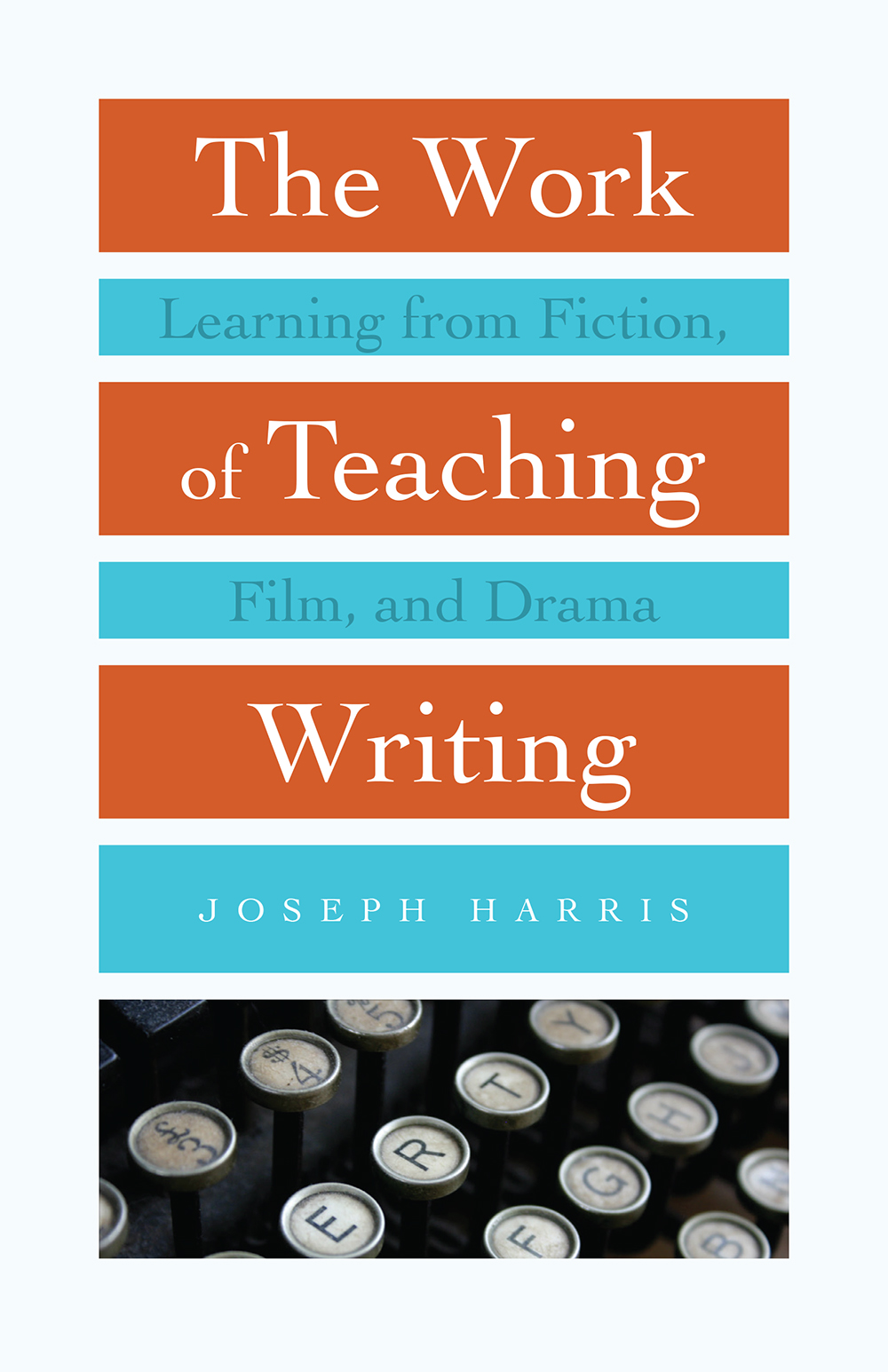
The Work of Teaching Writing
Learning from Fiction, Film, and Drama
Joseph Harris
U TAH S TATE U NIVERSITY P RESS
Logan
2020 by University Press of Colorado
Published by Utah State University Press
An imprint of University Press of Colorado
245 Century Circle, Suite 202
Louisville, Colorado 80027
All rights reserved
 The University Press of Colorado is a proud member of the Association of University Presses.
The University Press of Colorado is a proud member of the Association of University Presses.
The University Press of Colorado is a cooperative publishing enterprise supported, in part, by Adams State University, Colorado State University, Fort Lewis College, Metropolitan State University of Denver, Regis University, University of Colorado, University of Northern Colorado, University of Wyoming, Utah State University, and Western Colorado University.
ISBN: 978-1-60732-971-8 (paperback)
ISBN: 978-1-60732-972-5 (ebook)
https://doi.org/10.7330/9781607329725
Library of Congress Cataloging-in-Publication Data
Names: Harris, Joseph (Joseph D.), author.
Title: The work of teaching writing : learning from fiction, film, and drama / by Joseph Harris.
Description: Logan : Utah State University Press, [2019] | Includes bibliographical references and index.
Identifiers: LCCN 2019052097 (print) | LCCN 2019052098 (ebook) | ISBN 9781607329718 (paperback) | ISBN 9781607329725 (ebook)
Subjects: LCSH: Teachers in motion pictures. | Teachers in literature.
Classification: LCC PN1995.9.T4 H37 2019 (print) | LCC PN1995.9.T4 (ebook) | DDC 791.43/6557dc23
LC record available at https://lccn.loc.gov/2019052097
LC ebook record available at https://lccn.loc.gov/2019052098
Cover illustration eelke dekker/Flickr
For my fellow writing teachers
Contents
I thank the Edwin Mellen Press for permission to reprint, in , my analysis of the exchanges between Wilfred Owen and Siegfried Sassoon, which first appeared in the second edition of my book A Teaching Subject (2012).
I had the chance while I was at Duke University to teach several undergraduate seminars on representations of teaching and learning. I particularly remember a moment in one of them when I had asked the class what we saw students and teachers actually doing in the texts we were reading and watching together, and they replied well, we almost never see them doing any real work. That comment stayed with me, and I hope it is clear how it has informed my writing.
It was my close friend and co-teacher at the University of Pittsburgh, Steve Carr, who first pointed out to me that Phaedrus asks Socrates to remind him (rather than help him remember) what theyve been discussing. I asked another friend, the classicist Peter Burian of Duke University, to check if this shift in verbs was an accident of translation, and he assured me it was not. I dont presume that either Steve or Peter will agree with my eccentric reading of the Phaedrus, but I could never have constructed it without them.
Julie Wilson found many of the critical texts I discuss in Background Readings during the summer she worked as my research assistant. She has helped me look more learned (or, at least, sort of). I am very thankful. Jeanne Marie Rose of Penn State Berks and Margaret DeBelius of Georgetown University offered very useful responses to the first draft of this manuscript, pushing me to make the line of thought that connects my readings of various texts more clear. And out of the blue, Paul Corrigan of Southeastern University generously offered to read the near-final version of this book and helped me formulate my title, a new introduction, and the line of thinking they gesture toward. I owe him special thanks. I am also grateful to have had the chance to informally share my work in progress with too many friends and colleagues to list here, most of whom asked: Did you ever read this? Or, did you ever watch that? I always hurried to do the newly assigned reading or viewing.
Dan Pratt has designed a handsome and bold cover for this book. My thanks to him. I also owe thanks to Cheryl Carnahan for her close and attentive copyediting of my manuscript, to Laura Furney for establishing the format of the book, and to Linda Gregonis for preparing its index. And it was a special pleasure to have the help of Rachael Levay, the new acquisitions editor at Utah State University Press, in turning my manuscript into a book. Rachael is stepping into the shoes of one of the great editors of books on teaching writing, Michael Spooner, and she is doing so with grace and authority.
I walked into and out of writing this book several times over the last decade. Art is long, and life is short. So I am grateful to my wife, Pat, for turning to me at breakfast one morning and asking so, are you going to finish that book this summer? I offer her all my thanks and love.
A book is a machine to think with...
I. A. Richards
Teaching writing is not a glamorous job. Our days are occupied with essays and books, classes and committees and office hours. If there is an image that sums up what we are about, then it must be the stack of student papers waiting to be read and commented on, set next to the laptop alongside the pens, post-its, folders, and coffee cups cluttering the desk. Ours is a busy if quiet line of work, bookish by definition, filled with words and ideas more than actions.
And yet writing teachers are familiar figures in the popular imaginationplaying key roles in novels like Push, Up the Down Staircase, and Old School, movies like Dead Poets Society, Freedom Writers, and Educating Rita, and plays like Oleanna and The History Boys. As a college writing teacher, Im interested in what such books, movies, and plays have to tell me about my work. How do others understand what I am trying to accomplish? How do they represent the experience of learning to write? How can I draw on the scenes and stories they offer in rethinking my own work with student writers?
Before outlining my plan for answering those questions, let me quickly note two things this book is not. First, it is not a critique. There is a long tradition of complaint among academics about how our work has been represented in popular culture. The usual criticism is that popular books and movies tend to sentimentalize good teaching as hinging on an ability to connect with students as persons and very little else. And so, as one academic critic after the other has pointed out, teacher features tend to gloss over real problems of gender, race, class, and authority in the classroom, since the only thing that really matters, it would seem, is that the teacher cares. The professional, the political, and the intellectual are all subsumed by the personal. We are left with a popular view of the ideal teacher as the friend and hero of students that many real-life teachers find almost impossible to accept.
There is much that is admirable about this scrupulous refusal of a flattering image of ourselves. There is also something off-putting about it. For when we resist the role of the teacher as the person who cares, who inspires, who goes the extra mile to reach students, we are in effect telling the rest of the culture that, once again, theyve got it wrong, that they should really want a different sort of teacher. We do not, it quickly becomes clear, much appreciate having others tell us how to do our work. By distancing ourselves from the images of teachers in the media, we reassert our authority over what should count as good teaching.
Next page

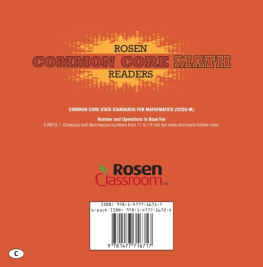
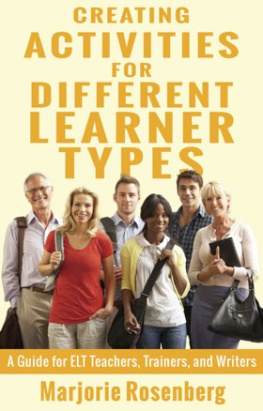
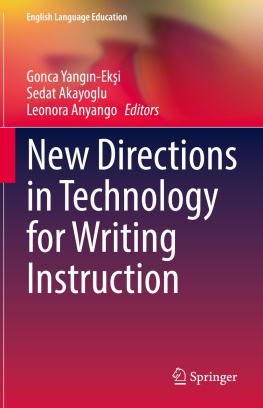
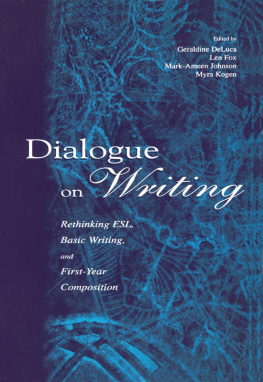
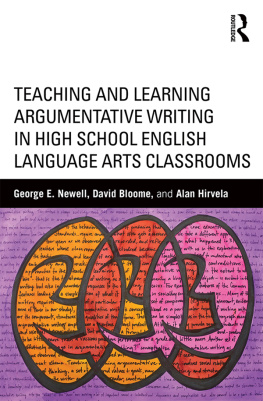
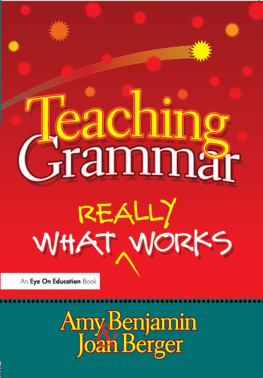
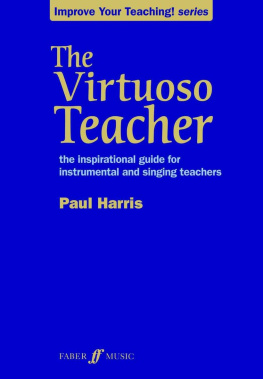

 The University Press of Colorado is a proud member of the Association of University Presses.
The University Press of Colorado is a proud member of the Association of University Presses.